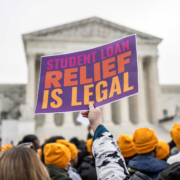Stopping robocalls takes a village – National Consumers League
 Remember the days when dinner was routinely interrupted by a phone call from someone trying to sell something? If you had a phone in your house before 2003, chances are that any time the phone rang in the evening it was likely to be a telemarketer on the other end of the line. Unsurprisingly, all those unwanted phone calls generated significant consumer outrage.
Remember the days when dinner was routinely interrupted by a phone call from someone trying to sell something? If you had a phone in your house before 2003, chances are that any time the phone rang in the evening it was likely to be a telemarketer on the other end of the line. Unsurprisingly, all those unwanted phone calls generated significant consumer outrage.
Thanks to all those consumer complaints and the diligent work of consumer advocates, Congress passed the Do-Not-Call Implementation Act of 2003. Because of that law, for the first time, telemarketers (with some carefully limited exceptions) were prohibited from calling consumers who registered their phone numbers on the Do Not Call (DNC) Registry. Faced with the opportunity to avoid those dinner time telemarketing calls, consumers flocked to register their numbers on the Registry. As of September 2015, there were over 222 million active registrations in the DNC Registry, making the law one of the most popular consumer protections of all time.
Thanks to another consumer protection law, the Telephone Consumer Protection Act of 1991 (TCPA), telemarketers are prohibited from calling cell phones using automated dialers (so-called “autodialers”), under threat of private litigation and other enforcement measures. As anyone who’s gotten a call from “Rachel at Card Services” or received an “urgent message about the status of your auto warranty” on their cell phones can attest, however, annoying robocalls remain a fact of life for many cell phone owners.
Unfortunately, fraudsters are increasingly taking advantage of advanced Internet calling technology to hide the source of their calls. In addition, they often base their operations overseas – beyond the easy reach of U.S. law enforcement. This is a major reason why an estimated 2.3 billion robocalls (or 51,523 calls every minute) made it through to consumers’ phones in January 2016 alone.
Last year, the Federal Communications Commission (FCC) announced new steps to address the growing threat of fraudulent robocalls. In particular, the FCC clarified that phone carriers are not prohibited from offering robocall-blocking technology to their customers. The Commission also noted that the TCPA protects consumers from auto-dialed text messages sent to their wireless devices in the same way it protects them from auto-dialed voice calls. A number of companies currently offer robocall-blocking technology, and major wireless and landline phone carriers have been investigating ways to address the problem.
At the same time that criminal robocallers are using powerful technology to circumvent protections against fraudulent telemarketing calls, recent legislation has created a loophole in the consumer protections that the TCPA provides. Although the use of so-called autodialers to call cellular phones is generally illegal under the TCPA, language inserted into last year’s federal Bipartisan Budget Act allows debt collectors to use autodialers to call the cellphones of consumers who owe money for student loans, back taxes, and other debts owed the federal government.
In response, and with the support of more than a dozen consumer and civil rights groups, Senator Edward Markey (D-MA) and Representative Tammy Duckworth (D-IL) introduced the HANGUP Act, which would repeal the language included in the budget act. That bill is currently stuck in committee, despite vigorous advocacy from our colleagues at Consumers Union.
Between criminal robocalls from technologically savvy fraudsters and legislative weakening of the TCPA, it’s easy to be pessimistic about the chances of putting a dent in the robocall problem any time soon. There is some good news to report on this front, however. The FCC’S proposed rules to implement the Budget Act changes would limit the number of calls or texts that federal debt collectors can make to consumers without consent to three per month. The FCC’s rules would also require federal debt collectors to respect a request by the call recipient to cease calls. In addition, thanks in part to efforts like the Federal Trade Commission’s Robocall Challenge (and its successor contest – “Robocalls: Humanity Strikes Back”), innovative startups are emerging that offer consumers technology that can help block unwanted robocalls.
The TCPA is a critical piece of consumer protection legislation for protecting consumers from the plague of unwanted robocalls. However, the TCPA alone won’t solve the problem. A comprehensive solution will take cooperation by the entire ecosystem of stakeholders in the fight against robocalls – consumers, phone companies, regulators and Congress— to make a dent in the problem.




















